Industrial RO vs Ultrafiltration Comparison 2026
- Industrial RO vs Ultrafiltration Comparison 2026
- Understanding Industrial Reverse Osmosis (RO)
- Exploring Ultrafiltration (UF) Technology
- Comparative Analysis: Industrial RO vs Ultrafiltration
- Applications and Synergy Between RO and UF
- Aqualitek's Advanced Water Treatment Solutions
- Frequently Asked Questions (FAQ)
- Contact Us
Industrial RO vs Ultrafiltration Comparison 2026
Water treatment technologies are essential for ensuring access to clean and safe water across various industries. Among the most prominent methods are Industrial Reverse Osmosis (RO) and Ultrafiltration (UF). This article delves into a comprehensive comparison of these two technologies, highlighting their differences, applications, and the advantages of integrating them. Additionally, we'll introduce Aqualitek Water Treatment Technologies Co., Ltd. (AQT), a leading manufacturer specializing in advanced water treatment systems.
Understanding Industrial Reverse Osmosis (RO)
Industrial Reverse Osmosis (RO) is a water purification process that utilizes a semipermeable membrane to remove ions, unwanted molecules, and larger particles from drinking water. The process involves applying pressure to overcome the natural osmotic pressure, allowing water molecules to pass through the membrane while rejecting contaminants. RO systems are renowned for their ability to produce high-purity water, making them suitable for applications requiring stringent water quality standards.
Key Features of Industrial RO Systems:
High Contaminant Removal Efficiency: RO membranes effectively eliminate a wide range of contaminants, including dissolved salts, organic compounds, and microorganisms.
Energy Consumption: The process requires significant energy due to the high pressures needed to drive water through the membrane.
Maintenance Requirements: RO membranes are susceptible to fouling and scaling, necessitating regular maintenance and periodic replacement to ensure optimal performance.
Exploring Ultrafiltration (UF) Technology
Ultrafiltration (UF) is a membrane filtration process that operates at lower pressures compared to RO. UF membranes have pore sizes typically ranging from 1 to 100 nanometers, allowing them to filter out suspended solids, bacteria, and some viruses while permitting smaller molecules and dissolved salts to pass through. This makes UF an effective solution for applications where the removal of larger particles and microorganisms is essential, but the retention of dissolved minerals is acceptable.
Key Features of Ultrafiltration Systems:
Selective Filtration: UF membranes provide selective filtration, removing particles and microorganisms based on size exclusion.
Lower Energy Consumption: Operating at lower pressures results in reduced energy usage compared to RO systems.
Maintenance Considerations: While UF membranes are less prone to fouling than RO membranes, they still require regular cleaning to maintain efficiency.
Comparative Analysis: Industrial RO vs Ultrafiltration
To provide a clear comparison between Industrial RO and Ultrafiltration, consider the following table:
| Aspect | Industrial RO
| Ultrafiltration (UF) |||||| Pore Size | Typically 0.0001 micrometers (0.1 nanometers)| 1 to 100 nanometers
|| Contaminant Removal | Removes dissolved salts, organic compounds, and microorganisms | Removes suspended solids, bacteria, and some viruses |
|---|---|---|
| Energy Consumption | High due to the need for high-pressure pumps | |
| Lower, operates at lower pressures | ||
| Maintenance Needs | Regular cleaning and membrane replacement due to fouling and scaling | Periodic cleaning to prevent fouling |
| Water Recovery Rate | Typically 50-85% depending on feedwater quality | |
| Generally high, around 85-95% |
| Cost Considerations | Higher initial investment and operational costs | Lower initial investment and operational costs |
|---|
Applications and Synergy Between RO and UF
Both Industrial RO and Ultrafiltration have distinct applications:
Industrial RO Applications:
- Desalination of seawater
- Production of ultrapure water for pharmaceuticals
- Wastewater treatment and reuse
Ultrafiltration Applications:
- Pretreatment for RO systems
- Drinking water purification
- Food and beverage processing
Integrating UF as a pretreatment step before RO can enhance system performance. UF effectively removes larger particles and microorganisms, reducing the load on RO membranes and extending their lifespan. This combination leads to improved water quality and operational efficiency.
Aqualitek's Advanced Water Treatment Solutions
Aqualitek Water Treatment Technologies Co., Ltd. (AQT), headquartered in Guangzhou, China, is a leading manufacturer and supplier of advanced water treatment systems and high-quality component parts. We specialize in delivering customized solutions for residential, commercial, and industrial applications, meeting diverse water purification needs worldwide.
Our Product Range Includes:
Membrane Systems:
- Reverse Osmosis (RO) Systems
- Ultrafiltration (UF) Systems
- Nanofiltration (NF) Systems
Water Filtering Systems:
- Activated Carbon Filters
- Multi-Layer Media Filters
- UV Water Sterilization Systems
Ion Exchange Systems:
- Deionized (DI) Water Systems
- Electrodeionization (EDI) Systems
Customized Water Purification Systems:
- Tailored solutions for specific industrial needs
- Modular systems adaptable to varying flow rates and contaminant profiles
Core Competencies:
Engineering Excellence:
- Backed by a team of experienced engineers and technical specialists, we provide tailor-made water treatment solutions to suit various industries and applications.
High-Quality Standards:
- We adhere to strict quality control measures, ensuring that our products meet international safety and efficiency standards.
Comprehensive Product Range:
- From residential water filtration to large-scale industrial purification systems, we offer one-stop solutions for all water treatment needs.
Frequently Asked Questions (FAQ)
1. What is the primary difference between Industrial RO and Ultrafiltration?
Industrial RO systems are designed to remove dissolved salts and organic compounds, producing high-purity water. Ultrafiltration systems, on the other hand, focus on removing suspended solids and microorganisms, allowing dissolved salts and smaller molecules to pass through.
2. Can Ultrafiltration be used as a pretreatment for Reverse Osmosis?
Yes, Ultrafiltration is often used as a pretreatment step before Reverse Osmosis. It effectively removes larger particles and microorganisms, reducing the load on RO membranes and extending their lifespan.
3. What are the energy requirements for Industrial RO and Ultrafiltration systems?
Industrial RO systems require higher energy due to the high pressures needed to drive water through the membrane. Ultrafiltration systems operate at lower pressures, resulting in reduced energy consumption.
4. How does Aqualitek ensure the quality of its water treatment systems?
Aqualitek adheres to strict quality control measures, ensuring that our products meet international safety and efficiency standards. Our team of experienced engineers provides tailor-made solutions to suit various industries and applications.
5. How can I get in touch with Aqualitek for more information?
You can contact Aqualitek by phone at +86 139 2235 7065 or via email at aimee@aqualitek.com. Our team is ready to assist you with your water treatment needs.
Contact Us
For more information on our products and services, or to discuss your specific water treatment requirements, please reach out to us:
- Phone: +86 139 2235 7065
- Email: aimee@aqualitek.com
- Address: No.5 Zhengli Street, Shawan Street, Panyu District, Guangzhou, China
We look forward to partnering with you to provide efficient and reliable water treatment solutions.
Note: The information provided in this article is based on current industry standards and practices as of November 2025. For the most up-to-date information, please consult with water treatment professionals or contact Aqualitek directly.
**
- (https://livetoplant.com/ultrafiltration-vs-reverse-osmosis-key-differences/)
- (https://www.mordorintelligence.com/industry-reports/ultrafiltration-market)
- (https://www.aqualitek.com/)
Disclaimer: The above information is for educational purposes only and should not be considered as professional advice. Always consult with a qualified water treatment specialist for specific applications.

Validating Electrodeionization Systems for Pharmaceutical Water

Best Reverse Osmosis Water Filter System: How to Choose Right

Compliance and Quality Standards for Ultrafiltration Water Systems
How to Test Well Water: Parameters, Methods, and Frequency
Solutions
Are AQT’s water treatment products certified?
Yes! Our products comply with international quality and safety standards, including ISO, CE, and NSF certifications. We prioritize high-quality materials, advanced technology, and strict quality control to ensure superior performance and reliability.
Ion Exchange Water Treatment Systems
Are mixed bed systems better than two-bed systems?
Mixed bed polishers are used for final polishing after RO or two-bed deionization to achieve ultra-pure water.
FAQ-aqualitek
What industries does AQT serve?
We provide water treatment solutions for a wide range of industries, including:
Industrial Manufacturing – Process water treatment, cooling water, and boiler feed.
Hospitality & Commercial – Hotels, restaurants, and office buildings.
Residential Applications – Drinking water purification and softening.
Healthcare & Pharmaceuticals – Ultra-pure water for laboratories and hospitals.
Municipal & Public Utilities – Water supply and wastewater treatment.
Food & Beverage Processing – Filtration for beverage production and food safety.
Blog
How long does a water softener system last?
Most systems last 10–15 years with proper maintenance. Resin beads may need replacement after 8–10 years.
Water Filters
Are your filters suitable for seawater or chemical-heavy applications?
Yes, we offer FRP and stainless steel housings resistant to corrosion and suitable for marine or aggressive chemical environments.

500 LPH Reverse Osmosis (RO) Water Purification Machine TWV - 412
Our 500 LPH Reverse Osmosis (RO) System is engineered to provide high-quality purified water for commercial applications. Designed with advanced RO technology, durable components, and a user-friendly interface, this system ensures consistent performance, low maintenance, and long-term reliability.
With its compact design and robust skid-mounted frame, it’s an excellent choice for businesses that demand efficiency and quality in water purification.

Tap Water Reverse Osmosis (TWRO) Systems TWV Series
TWV series Reverse Osmosis (RO) systems are pre-engineered and pre-assembled units with 2.5”/4” membrane housings(single element type)for tap water(lower TDS).They are designed for overall superior performance, high recovery rates and offer great savings with low maintenance and operation costs.

Tap Water Reverse Osmosis (TWRO) Systems TWF Series
TWF series Reverse Osmosis (RO) systems are pre-engineered and pre-assembled units with 4” membrane housings(multiple elements type) for tap water(lower TDS) .The medium large volumes can help meet your a variety of commercial and industrial applications. They are designed for overall superior performance, high recovery rates and offer great savings with low maintenance and operation costs.

Tap Water Reverse Osmosis (TWRO) Systems TWE Series
TWE series Reverse Osmosis (RO) systems are pre-engineered and pre-assembled units with 8” membrane housings for tap water (lower TDS). The large volumes can help meet your a variety of industrial applications. They are designed for overall superior performance, high recovery rates and offer great savings with low maintenance and operation costs.
Request More Information
Contact us today for product catalogs, customization options, and a free quotation designed for your business needs.
Rest assured that your privacy is important to us, and all information provided will be handled with the utmost confidentiality.
© 2026 AQUALITEK. All rights reserved.

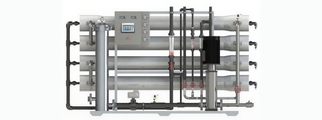
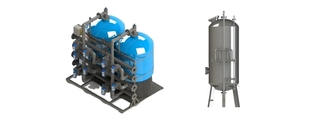
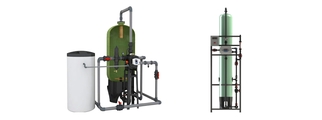
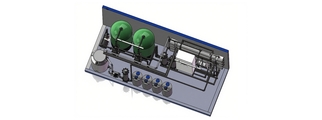
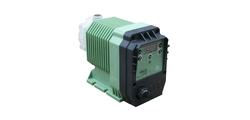
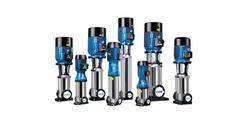
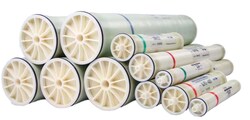
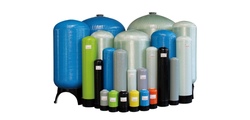
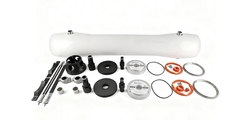
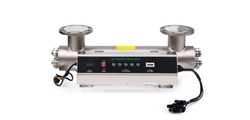
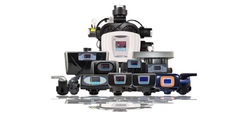
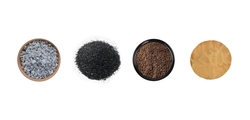
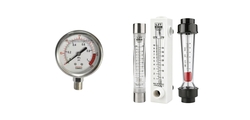
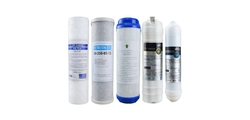
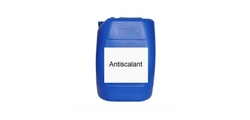
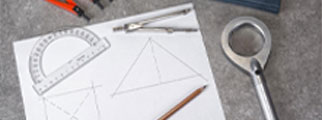



AQUALITEK- Aimee Hoo
AQUALITEK - Aimee Hoo